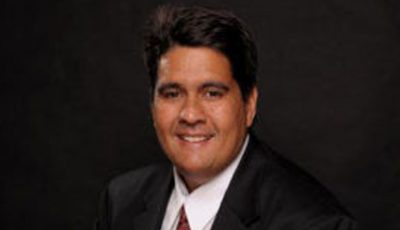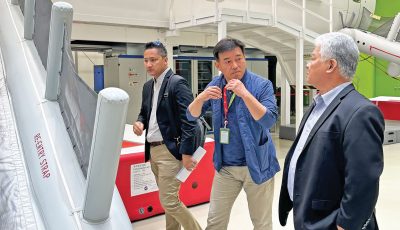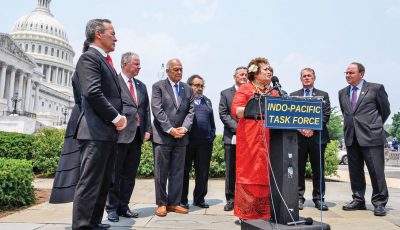CK’s Koguryo town
There are not many Korea towns outside of Korea and Yanbian (Korea-in-China). We mostly hear of Chinatowns around the world (about 200 of them, one is told) though the one in Honolulu is now predominantly Vietnamese. I have yet to hear of a Japan town though Hawaii is often referred to as a Nippon Prefecture; Korea towns emerged since after WWII with the determined pride the Koreas wore up their sleeves on both sides of the 38th parallel.
It is actually a new 7-story building and of the 60 rooms, to my knowledge, a few of Philippine descent (moi us one of them), a Chuukese and her son of the Micronesians, three Chinese, four Japanese, and the rest, Koreans. That is a one big Guryo town!
A lawyer friend asked me to check out a Korean name, the person claimed to reside in the place and wrote it as the address; the person in the front office who knows the 60 families by name never heard of nor seen the name before. It could just be one of the young Koreans in town who lives in the building but with someone else, and uses the address to establish residence, not an uncommon practice, though, perhaps, not a legal one to residency guidelines, or U.S. immigration.
In 1972, I spent two months in Suwon outside of Seoul, where the place blossomed with plum and peach orchards rather than two-car garages; I’ve had reasons to go in and out of Korea since, mostly to Seoul (When I still had friends there), overnights in Inchon when in coming from China or Honolulu, and a good many times in Pusan as the transit point when I taught in China.
I love kimchee (China’s la ba chai) and beef bulgoggi, so at least, I’ve taken Korea to my tummy. Kimchee-breath might not be a compliment outside of Korea, but Hangkuk considers it so within its borders. Not actually unpleasant with the ladies, but that’s another story.
We are writing specifically of Guryo town in CK. Because of the perceived image of wealth in the place, particularly elderly Chinese, Japanese, and Koreans who invested their funds to run a health shop, a store, or a massage parlor on island, residents had been susceptible to the vandalism and thievery of the young.
The place is not, however, just for the elderly. A Korean gentleman who has spent 30 years on Saipan has children born on island, one at West Point across the Hudson from NYC, and the other, at the Naval Academy in Maryland. Maybe he has a third one being groomed to head for Colorado Springs! The father is a widower and his Annapolis lad was visiting, so I got to meet my neighbor two doors north, and his thoroughly westernized son.
I’ve heard Filipino spoken in the hallway and in rooms by both genders several times, and it appears that they are the maintenance and cleaning crew. A resident once stopped me and asked if I could help her deal with her bathroom. I told her it was not my specialty and left it at that.
I occupy a room that was in the process of being fully restored to its original condition after being abused by the children of the previous tenant, and I took the place even if the damaged storm shutters were yet to be restored or replaced, but the workman who came to look at my electric, water, and floor tile requirements spoke a language I knew.
I sent an email to management on certain matters about the unit and maintenance was issued a copy. A kabayan was come to deal with my floor tile, electric, and water requirements. Upon reading my note, he assumed I was an American since my sentences were full and my narrative provided details. He was pleased to learn we might speak the same language. We chatted away more than I left him alone to do his work, but it was good let the “r’s” roll down the twirl of the tongue. Maraming salamat, po!
Konnichiwa and Ni hao are heard not too frequently in the hallway, but the Yo bo sa yo is spoken often. I was back in school in Texas where Koreans were peppy while their Japanese cousins stayed in the Library to pore over books with a dictionary on the side and a writing pad on the other. Nippon was no fun during the football season when the men’s dorm invited girlfriends to be pom-pom girls at halftime.
The Chinese were nowhere to be found as Nixon had yet to shake Mao’s hands; guys from Taiwan demonized Beijing with messianic undertones not too unpopular among the evangelical Texans.
The guard at Guryo town ground floor has signs in Korean and a brief follow-up in Chinese and Japanese. No Arabic script since the occasional Middle East recruiter of Bangladeshi workers stayed at the hotels. Besides, Sinosphere residents tend to be pork-eaters, anathema to our Moslem friends and their relations.
We reported earlier that a local cop, viewing the video of a recent robbery in the place, was aghast at the sight of the thief counting his loot. “He just got out of juvenile detention,” he exclaimed. Not yet sixteen, the kid is back to penal confinement.
The thieves just cost us two elderly residents. Guryo town. We keep the front door locked.



























